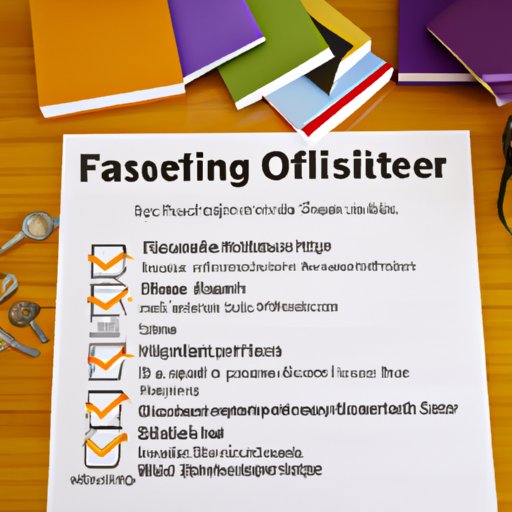Introduction
A foster home is a residence where children who cannot remain with their biological families are placed in order to provide them with a safe and nurturing environment. Foster homes play an important role in providing these children with the support they need to grow and develop into healthy and productive adults.
The need for foster homes is significant; there are currently hundreds of thousands of children in the United States alone who are living in foster care. The number of foster homes available, however, is not nearly enough to meet the demand. As such, those interested in making a difference in their communities can consider starting a foster home.

Requirements for Starting a Foster Home
Before starting a foster home, it’s important to understand the local regulations and requirements that must be met. These requirements vary by state, so it’s important to do research on the specific laws and regulations that apply in the area. Additionally, there may be additional requirements imposed by the local child welfare agency.
Financial considerations are also important when starting a foster home. Depending on the size of the home and the number of children being cared for, costs such as food, clothing, medical expenses, and other necessities can quickly add up. It’s important to have a clear budget in place to ensure that all necessary costs are covered.
In addition to meeting local regulations and financial considerations, those interested in starting a foster home must also undergo training and pass background checks. This ensures that everyone involved in the foster home is properly prepared to provide a safe and secure environment for the children.

Benefits of Operating a Foster Home
Operating a foster home can be a rewarding experience. Seeing the positive impact the home has on the children who stay there can provide a great sense of personal satisfaction. Additionally, the presence of a foster home in the community can help to make it a better place for everyone.

Process of Becoming Licensed as a Foster Home
The process of becoming licensed as a foster home involves completing an application and submitting it to the local child welfare agency. The application must include detailed information about the home, such as its size and layout, as well as the qualifications of those who will be caring for the children. Once the application is approved, the home must then meet any additional licensing requirements imposed by the agency.
Financial Implications of Starting a Foster Home
The cost of setting up a foster home can vary significantly depending on the size of the home, the number of children being cared for, and the type of services provided. In addition to these upfront costs, there are also ongoing costs associated with running a foster home, such as food, clothing, medical expenses, and other necessities. Fortunately, there are a variety of sources of funding available to help offset these costs.
Role of Foster Parents in Caring for Children in Need
Foster parents play a critical role in providing a safe and nurturing environment for the children in their care. Being a foster parent can be both rewarding and challenging, as it requires patience and understanding. Foster parents must be able to provide emotional support to the children, while also helping them to develop the skills they need to succeed in life.
Conclusion
Starting a foster home can be a rewarding experience, both personally and for the community. While there are many requirements and financial considerations involved in the process, there are also numerous sources of funding available to help offset these costs. Those interested in making a difference in their communities should consider starting a foster home.
(Note: Is this article not meeting your expectations? Do you have knowledge or insights to share? Unlock new opportunities and expand your reach by joining our authors team. Click Registration to join us and share your expertise with our readers.)
